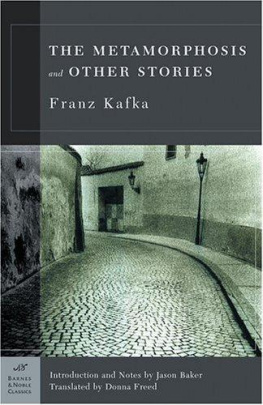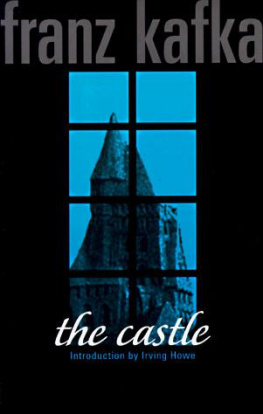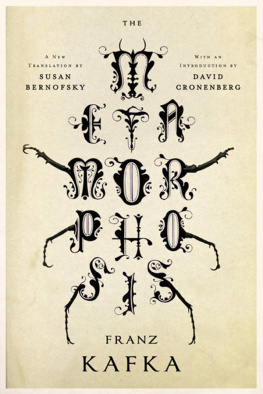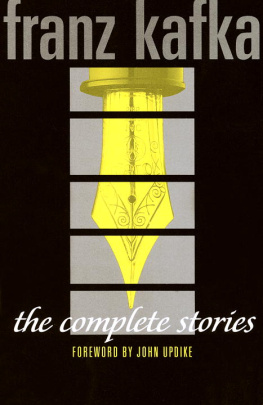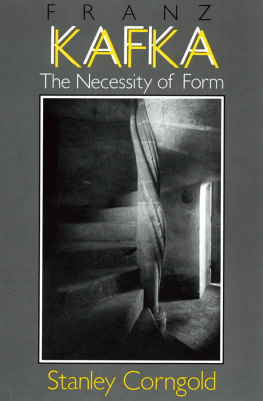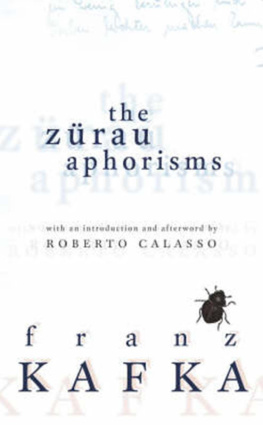Franz Kafka - The Metamorphosis and Other Stories
Here you can read online Franz Kafka - The Metamorphosis and Other Stories full text of the book (entire story) in english for free. Download pdf and epub, get meaning, cover and reviews about this ebook. year: 2003, publisher: Barnes & Noble Classics, genre: Detective and thriller. Description of the work, (preface) as well as reviews are available. Best literature library LitArk.com created for fans of good reading and offers a wide selection of genres:
Romance novel
Science fiction
Adventure
Detective
Science
History
Home and family
Prose
Art
Politics
Computer
Non-fiction
Religion
Business
Children
Humor
Choose a favorite category and find really read worthwhile books. Enjoy immersion in the world of imagination, feel the emotions of the characters or learn something new for yourself, make an fascinating discovery.
- Book:The Metamorphosis and Other Stories
- Author:
- Publisher:Barnes & Noble Classics
- Genre:
- Year:2003
- Rating:3 / 5
- Favourites:Add to favourites
- Your mark:
- 60
- 1
- 2
- 3
- 4
- 5
The Metamorphosis and Other Stories: summary, description and annotation
We offer to read an annotation, description, summary or preface (depends on what the author of the book "The Metamorphosis and Other Stories" wrote himself). If you haven't found the necessary information about the book — write in the comments, we will try to find it.
The Metamorphosis and Other Stories — read online for free the complete book (whole text) full work
Below is the text of the book, divided by pages. System saving the place of the last page read, allows you to conveniently read the book "The Metamorphosis and Other Stories" online for free, without having to search again every time where you left off. Put a bookmark, and you can go to the page where you finished reading at any time.
Font size:
Interval:
Bookmark:
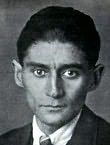
Table of Contents
FROM THE PAGES OF
THE METAMORPHOSIS AND OTHER STORIES
As Gregor Samsa awoke from unsettling dreams one morning, he found himself transformed in his bed into a monstrous vermin.
(from The Metamorphosis, page 7)
All he wanted to do now was to get up quietly and undisturbed, get dressed, and, most important, eat breakfast, and only then consider what to do next, because, as he was well aware, in bed he could never think anything through to a reasonable conclusion.
(from The Metamorphosis, page 9)
During the daytime Gregor did not want to show himself at the window, if only out of consideration for his parents, but he could not crawl around very far in the few square meters of floor, nor could he bear to lie still even at night, and eating gave him scant pleasure, so as a distraction he acquired the habit of crawling crisscross over the walls and ceiling.
(from The Metamorphosis, page 29)
The sister played so beautifully. Her face was tilted to one side and she followed the notes with soulful and probing eyes. Gregor advanced a little, keeping his eyes low so that they might possibly meet hers. Was he a beast if music could move him so?
(from The Metamorphosis, page 44)
Alonedo you know what that is?
(from The Judgment, page 57)
Georg stared up at the monstrous specter of his father.
(from The Judgment, page 62)
On a ship the morals change as often as the ports.
(from The Stoker, page 69)
Guilt is unquestionable.
(from In the Penal Colony, page 100)
This was not the exquisite torture the officer had wished for; this was out-and-out murder.
(from In the Penal Colony, page 118)
A false ring of the night bell, once answeredit can never be made right. (from A Country Doctor, page 128)
No one was capable of spending all his days and nights keeping watch over the hunger artist, therefore no one person could be absolutely certain from firsthand knowledge that the fast had truly been constant and flawless; only the hunger artist himself could know that, and so at the same time only he could be a satisfied spectator of his own fast.
(from A Hunger Artist, page 138)
Josephine is the sole exception, she loves music and also knows how to give voice to it; she is the only one, and with her demise music will disappearfor who knows how longfrom our lives.
(from Josephine the Singer, or the Mouse People, page 149)
We lead very uneasy lives; each day brings its surprises, anxieties, hopes, and fears; it would be impossible for any individual to bear it all without the constant support of his comrades.
(from Josephine the Singer, or the Mouse People, page 152)


Published by Barnes & Noble Books
122 Fifth Avenue
New York, NY 10011
www.barnesandnoble.com/classics
Kafkas stories in the original German were published in the following
years: The Judgment and The Stoker in 1913; The Metamorphosis
in 1915; A Message from the Emperor, In the Penal Colony, A Country
Doctor, An Old Leaf, and Before the Law in 1919; A Hunger Artist
in 1922; and Josephine the Singer in 1924. Donna Freeds
translations of these stories first appeared in 1996.
Published in 2003 by Barnes & Noble Classics with new Introduction,
Notes, Biography, Inspired By, Comments & Questions,
and For Further Reading.
Introduction, Notes, and For Further Reading
Copyright 2003 by Jason Baker.
Note on Franz Kafka, The World of Franz Kafka,
Inspired by Franz Kafka, and Comments & Questions
Copyright 2003 by Barnes & Noble, Inc.
All rights reserved. No part of this publication may be reproduced or
transmitted in any form or by any means, electronic or mechanical, including
photocopy, recording, or any information storage and retrieval system,
without the prior written permission of the publisher.
Barnes & Noble Classics and the Barnes & Noble Classics
colophon are trademarks of Barnes & Noble, Inc.
The Metamorphosis and Other Stories
ISBN-13: 978-1-59308-029-7 ISBN-10: 1-59308-029-8
eISBN : 978-1-411-43268-0
LC Control Number 2003102536
Produced and published in conjunction with:
Fine Creative Media, Inc.
322 Eighth Avenue
New York, NY 10001
Michael J. Fine, President & Publisher
Printed in the United States of America
QM
12 14 16 18 20 19 17 15 13 11
FRANZ KAFKA
Franz Kafka was born in Prague in 1883 into a middle-class Jewish household in which he grew up with feelings of inferiority, guilt, resentment, and confinement. He was the eldest of his parents six children; two brothers died in infancy, and he had three sisters. Franzs domineering father expected his son to take up a profitable business career that would ensure social advancement for the family, as well as a successful marriage promising the same. His mother was submissive to her husband, always siding with him in matters concerning Franz. Toward her son she was alternately fawning and neglectful.
Kafka earned his doctorate in law in 1906 but decided against practicing, to the disappointment of his father. Instead, in 1908 he took a position at an insurance agency, which left afternoons and evenings open for writing, and at which he remained until 1922two years before his death.
Kafkas literary method follows the logic of dreams and other unconscious processes, and his stories read like allegories without an established point of reference. Kafkas best-known story, The Metamorphosis (1915), in which he translated his experience as family breadwinner into a parable of alienation, transformation, and ultimately death, epitomizes his style. During his early writing life Kafka was introduced to the writings of Friedrich Nietzsche, Charles Dickens, Fyodor Dostoevsky, and Thomas Mann, and became part of a literary and philosophical circle that included Oskar Baum, Martin Buber, and Felix Weltsch.
Kafka had significant relationships with several women during his brief life, notably Felice Bauer, to whom he became engaged in 1914 and 1917; Julie Wohryzek; Milena Jesensk-Pollack, his Czech translator, with whom he became involved in 1920; and Dora Diamant, a young Polish woman he met a year before his death. Kafkas sporadic literary career was in part fueled by these relationships, which varied in degree of dysfunction, and in which he vacillated emotionally, paralleling his mothers behavior toward him as a boy.
Diagnosed with tuberculosis in 1917, Kafka saw the publication of a limited number of his works during his lifetime, including The Judgment (1913), The Stoker (1913), for which he received the Fontane Prize in 1915, The Metamorphosis (1915), A Country Doctor (1919), and In the Penal Colony (1919). In 1924 Kafka asked his confidant Max Brod to burn his remaining unpublished manuscripts. Instead, Brod dedicated the rest of his life to the full publication of Kafkas works. Among these are the novels The Trial (1925), The Castle (1926), and Amerika (1927). Franz Kafka died on June 3, 1924, near Vienna.
THE WORLD OF FRANZ KAFKA AND
THE METAMORPHOSIS
| 1846 | Fyodor Dostoevsky publishes The Double , a work that will greatly influence Kafkas story The Metamorphosis. |
| 1850 |
Font size:
Interval:
Bookmark:
Similar books «The Metamorphosis and Other Stories»
Look at similar books to The Metamorphosis and Other Stories. We have selected literature similar in name and meaning in the hope of providing readers with more options to find new, interesting, not yet read works.
Discussion, reviews of the book The Metamorphosis and Other Stories and just readers' own opinions. Leave your comments, write what you think about the work, its meaning or the main characters. Specify what exactly you liked and what you didn't like, and why you think so.

